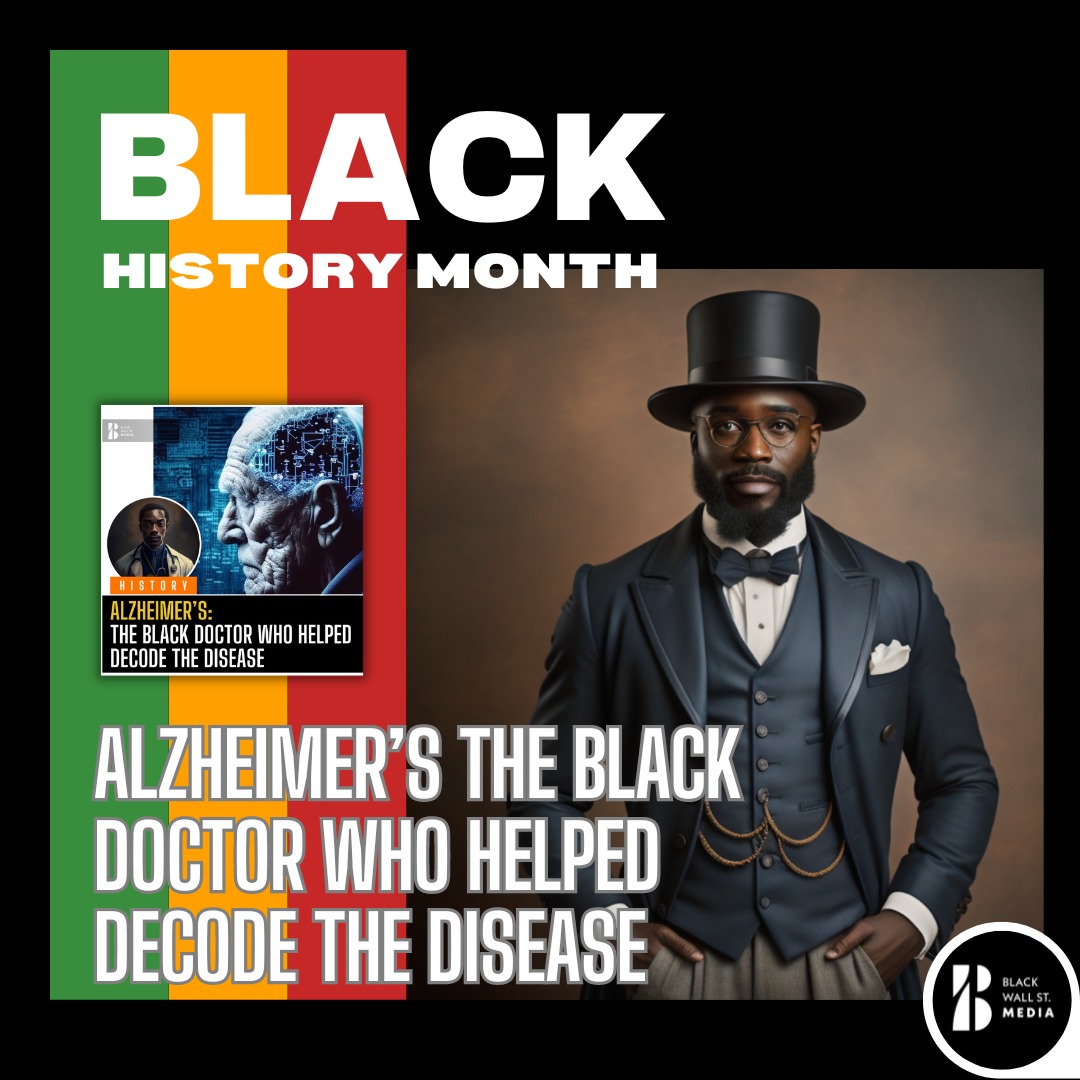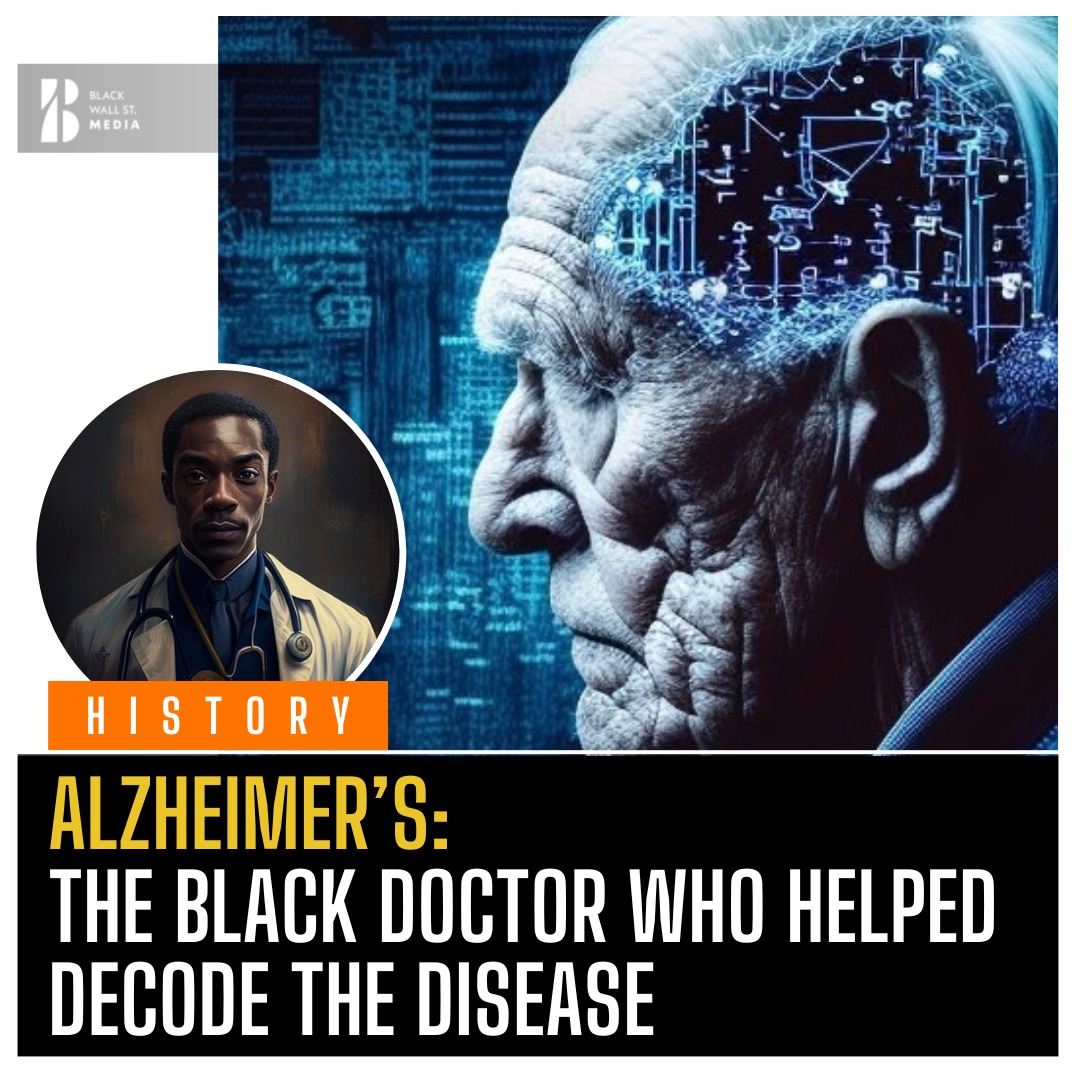HISTORY
Alzheimer’s the Black doctor who helped decode the disease
“🧠✨ Celebrating an Unsung Hero! Dive into the captivating journey of Dr. Solomon Fuller, a pioneer in Alzheimer's research and a standout figure in Black history. From his roots in Liberia to groundbreaking discoveries, discover the legacy of a medical trailblazer who defied adversity. 🌟”
Black Wall St. MediaContributor

Dr. Solomon Carter Fuller: Pioneering Alzheimer’s Researcher and Trailblazer in Black History
Introduction:
As the world grapples with the growing challenge of dementia, it’s crucial to recognize the unsung heroes who have contributed significantly to our understanding of this debilitating condition. During Black History Month, we pay tribute to Dr. Solomon Carter Fuller, an African American neurologist and psychiatrist whose groundbreaking research shed light on Alzheimer’s disease’s true nature. His pioneering work alongside Dr. Alois Alzheimer laid the foundation for our modern understanding of dementia.
Early Life and Education:
Solomon Carter Fuller was born in 1872 in Monrovia, the capital of Liberia. His unique heritage included paternal grandparents who had been enslaved in the United States but later gained their freedom in Liberia, and maternal grandparents who served as medical missionaries in Liberia. In 1889, Fuller moved to the United States, where he pursued his education and medical career.
Fuller’s academic journey took him to Livingstone College in Salisbury, N.C., and later to the Long Island College Hospital in Brooklyn, where he earned his MD degree in 1897. He embarked on his remarkable medical career with a strong foundation in education.
Contributions to Alzheimer’s Research:
Dr. Solomon Carter Fuller’s pivotal role in Alzheimer’s research began when he joined the faculty of the Boston University School of Medicine in 1899.
In 1904, he was selected as one of five foreign research assistants by Dr. Alois Alzheimer himself to work in his Munich laboratory. This opportunity allowed Fuller to conduct groundbreaking research on the observable brain abnormalities in dementia patients.
Fuller’s proficiency in the German language enabled him to translate and disseminate Alzheimer’s work to English-speaking audiences. His proficiency was instrumental in making the research accessible to a wider audience.
Pioneering Discoveries:
Fuller’s most significant contribution came when he performed numerous autopsies on deceased individuals who had suffered from dementia.
His observations, including the identification of neurofibrillary tangles and miliary plaques in the brain tissue, were groundbreaking.
Fuller reported on the significance of neurofibrillary tangles five months before Dr. Alois Alzheimer, revealing a physically observable basis for this devastating condition that robbed individuals of their memories.
Fuller’s research not only confirmed that Alzheimer’s was a physical disease of the brain but also led to the publication of the first comprehensive review of the disease.
Recognition and Challenges:
Despite his remarkable achievements, Fuller faced significant racial disparities in his professional life. As a professor at Boston University, he received lower pay compared to his white colleagues.
Despite his role as the de facto head of the neurology department, he never attained the title of department chair or full professorship.
Fuller’s Legacy:
In 1933, Fuller retired from Boston University after a white junior colleague was promoted over him to lead the neurology department officially.
He continued to practice neurology and psychiatry until diabetes took his eyesight. Dr. Solomon Carter Fuller passed away on January 16, 1953, at the age of 80.
While academia initially overlooked his contributions, Fuller finally received posthumous recognition in 1974 when the Black Psychiatrists of America established the Solomon Carter Fuller Program to support aspiring Black psychiatrists.
The Solomon Carter Fuller Mental Health Center in Boston was also founded that year. The American Psychiatric Association honors his legacy by presenting the annual Solomon Carter Fuller Award to individuals who have made pioneering contributions to improving the lives of Black people.
Conclusion:

Alzheimer’s the Black doctor who helped decode the disease
Dr. Solomon Carter Fuller’s groundbreaking research in Alzheimer’s disease played a pivotal role in unraveling the mysteries of this devastating condition.
His unwavering dedication to advancing medical science in the face of racial adversity continues to inspire us today.
As we grapple with the challenges of Alzheimer’s in the 21st century, Fuller’s legacy reminds us of the need for continued research and commitment to finding a cure for this debilitating disease.
Black Wall St. MediaContributor











